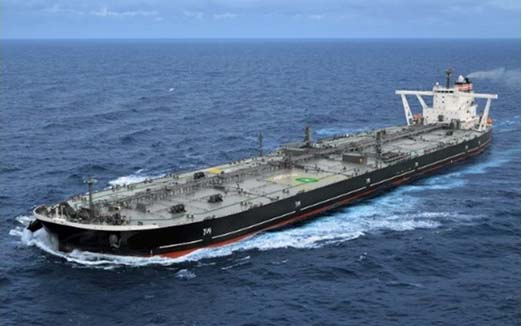NYK and Japan Marine United Corporation (JMU) are mutually formulating a method for estimating a ship’s performance in actual seas before construction is completed.
The companies have recently completed verification of a vessel’s propulsive performance in wind and wave conditions in calm seas and in weather and sea conditions similar to those prevalent in the oceans. When drawing up contracts, shipyards often have difficulty making precise estimates because the navigation route and weather and sea conditions are unknown. The hull shape above the water significantly affects actual sea performance.
The two companies aim to ascertain a vessel’s performance in actual seas before the conclusion of shipbuilding contracts, which will aid the reduction of GHG emissions by procuring highly fuel-efficient vessels.
In conventional shipbuilding contracts, the guaranteed speed is set and agreed based on the relationship between the ship’s speed and horsepower in calm waters, and the shipyard and shipping company mutually confirm the guaranteed speed during sea trials in the final phase of construction. However, since actual voyages are strongly affected by waves and winds, the guaranteed performance in calm seas can deviate significantly from the performance in actual sea conditions.
NYK and JMU are introducing a clause guaranteeing ship performance in actual sea conditions in a shipbuilding contract. The companies have been working since 2020 to verify performance in actual seas.
NYK and JMU have now confirmed the accuracy of the guaranteed speed/power curve for the ship performance in actual seas. Both companies have now agreed to establish an analysis and evaluation method to evaluate ship performance in actual seas technically and objectively for specific routes.
One of two new VLCCs was built using JMU technology to improve the shape of the vessel’s hull for better performance in actual seas, and the two companies confirmed a significant difference in this ship’s performance in actual seas, as expected.
NYK and JMU will utilise this new method of developing new hull forms to further improve performance in actual seas. The two companies will also evaluate the performance of other vessel types in actual seas. NYK will continue to evaluate the performance of its vessels with an emphasis on ship performance in actual seas and introduce new technologies to promote the procurement of highly fuel-efficient vessels.
Image: VLCC built using JMU performance verification technology (source: NYK)



